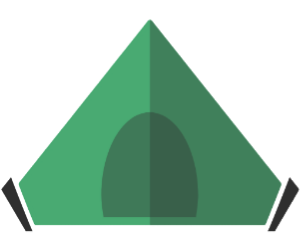
I encountered several people asking for some tips on how to sleep better during hiking trips. Sometimes, it is a curious case, considering that this jaunt is quite exhausting.
A day spent on hiking can beat your body for good. It will send you exhausted and weary, making sleep a lot easier to do.
However, not all people do experience this kind of fatigue. Some are still wide awake even after a long ascent. Insomnia while outdoors might not be a good thing since your body needs rest for the activities you are about to do the next day.
Fortunately, there are some ways on how you can attract Mr. Sandman to your tent. Here are some of them.
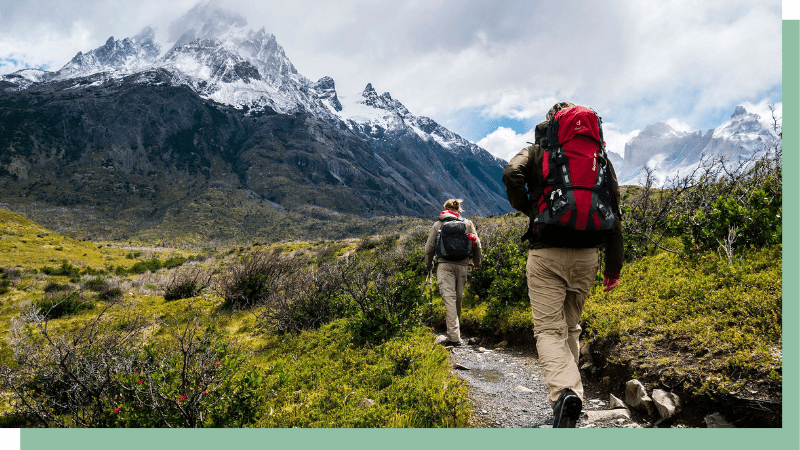
As I said, exhaustion is the best way to cure any insomnia and weariness. A tired body will scream for rest, despite how you resist it.
Fortunately, draining your energy in a hike is not that difficult. You just have to stay on the trail long enough so that your body will experience fatigue.
Don't push yourself too hard, though. Take breaks once in a while. But don't let the break last a long time. Otherwise, you will still feel rested once you get to your camping site.
If you are planning to sleep for eight hours straight, make sure that your hike will cover the same lengths, too. The breaks should be scheduled so that your body will be suited for an undisturbed evening rest.
Your tent doesn't offer any mattress-like flooring. If you lie bare there, you will really feel the rough surface underneath. It does not only cause sleeplessness; it also triggers a myriad of body pains and muscle aches.
A sleeping bag will act as your portable mattress so that you can still feel cozy outdoors. You should bring them on any backpacking trip, especially if you are heading to terrains where the ground is harsh and uneven.
Don't get a mattress on a hiking trip. Bringing that in an ascent is technically impractical and difficult. A sleeping pad works well for this application because it is compressible and lightweight. However, camping is fine if you are not moving around too much like how most hiking trips can be.
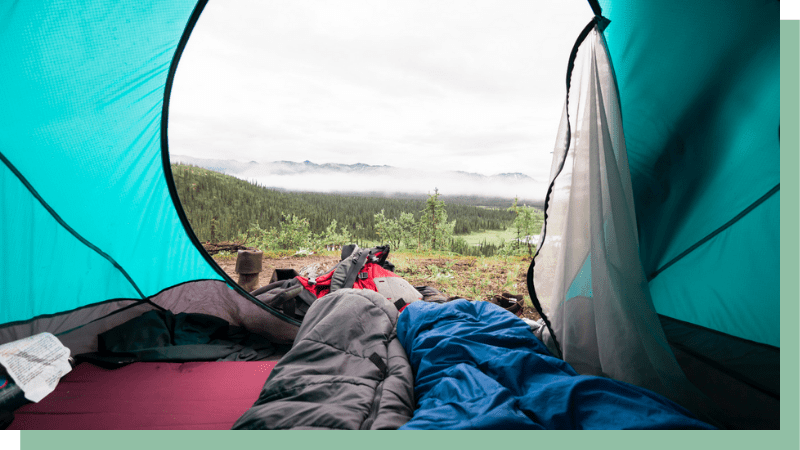
A sleeping pad is not enough platform for rest during an outdoor adventure. If you want to sleep better, you have to invest in sleeping bags. These are the ones that assure your utmost convenience, regardless of where you are or what kind of atmospheric conditions you'll encounter.
There are numerous types of sleeping bags out there.
If you are going on a summer hike, a little insulation is necessary. Ventilation is a must since the air outside might be humid. You can't sleep well if you are heavily sweating, right?
If you are on a winter hike, I do recommend sleeping bags that are heavily insulated. They are the ones that can keep your body warm, allowing you to sleep better amid the chilly climate.
In choosing a sleeping bag, insulation is vital. We have two options here:
When choosing a sleeping bag, make sure that it provides you with a comfortable cut. If you think that you will be bothered by the cold, a mummy-shaped sleeping bag is the best choice. If ventilation and roominess are the things that can make you sleep better, get a rectangular sleeping bag.
Another thing that you need to remember is that sleeping bags automatically lose some of their insulating capabilities while they are compressed. But don't worry. You just need to unpack them once you have arrived at your campsite. In this way, they will regain their performance once you are about to sleep.
Mother Nature has a nice array of ambient sounds. From the breeze of the wind to the flow of the streams, these are the sounds that you might hear while you are on your campsite.
Of course, hearing them is indeed refreshing. Compared to the cacophony of the urban jungle, these ambient noises are quite pleasing to the ears.
However, we need to acknowledge the fact that not all people are comfortable with too much noise. For instance, the chirping sounds of crickets and the muffled sound of branches and bushes can be irritating at times.
Hence, if you dislike these noises, better insert earplugs in your ears. In this way, you can still doze off smoothly.
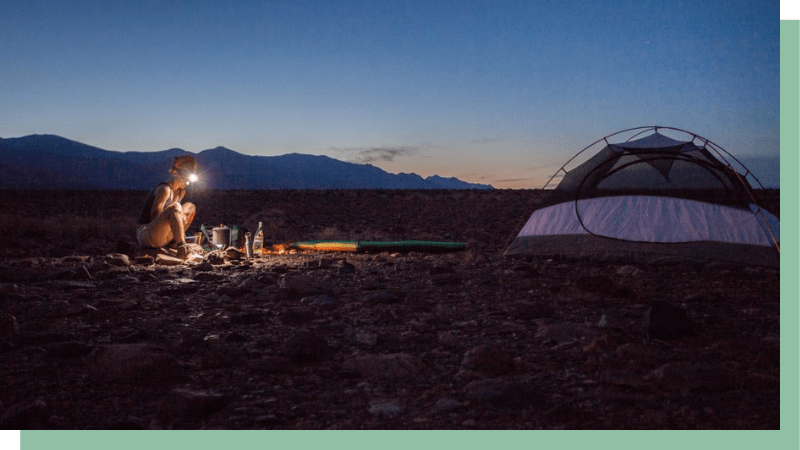
A meal full of carbohydrates is the best stuff for the tummy, especially if sleeping soundly is a concern.
Essentially, carbohydrates are an energy source; they also help your body recover from the intense hike. But at the same time, they can also assist in making you sleepy.
Every time your body is metabolizing carbs, the process is causing fluctuations in your blood sugar. This kind of reaction causes the sleepy and weary feeling. It also carbohydrates that active tryptophan--a protein that triggers sleepiness in the brain.
Hiking and camping can make you wet. If it is not your sweat, it could be the rain, snow, or other forms of precipitations.
It is for this reason as to why you need to wear the proper hiking and camping gear. You need to protect yourself and utilities from getting damp.
Sleeping wet or moist is not a good thing either. It will just make you uncomfortable, making sleep an elusive thing.
Aside from weaving wet socks or pants, it would really be great if you can sleep dry and fresh. Change clothes if necessary to ensure that you can wick off the sweat from your body.
If the climate is dry, you can wear loose shirts and shorts for optimal ventilation. If it is cold, surround yourself with a clean jacket, long underwear, and a snug pair of pants.
If possible, drink something warm before bedtime. Warm milk or chocolate can really give your body the sedating and soothing feeling that it needs. It can make you feel cozy and comfortable. Warm fluids also signal your body that it is time for sleep!
Keep in mind that warm doesn't mean hot. A hot cup of water will make you sweaty. Just like what I said, sweat does not help in beating sleepiness.
Bugs and insects are your enemies in the wild. They are these sneaky invaders that will disturb your rest.
Bug bites are also worrisome, especially if we are talking about mosquitoes and dangerous insects. Make sure that you can defend yourself from them so that you can have a pleasant camping experience.
Here are some ways you can keep the bugs out:
Puffing a cigarette before bedtime is not a good thing. Aside from the health issues that it can ensue, smoking can actually disturb your sleep.
Why? Nicotine works the same way with caffeine. The last thing that you want during your sleeping time is a stimulant.
You should avoid smoking at all costs, even if you find it comforting and soothing. In fact, don't smoke while hiking or camping. It will affect your respiratory system, which, in turn, can cause you to lose your stamina.
Before you sleep, drain your bladder. That's one of the most efficient ways to ensure that your evening rest will remain peaceful and unmoved.
A full bladder does not feel good. It can remove the sleepiness in your system. Your body is wired to answer the call of nature, after all. You can resist it. And it is not ideal for holding it either, as it can damage your bladder and kidney.
Don't forget to pee before you slip inside your sleeping bag. It is a tested-and-proven method that shields you from waking up from to time.
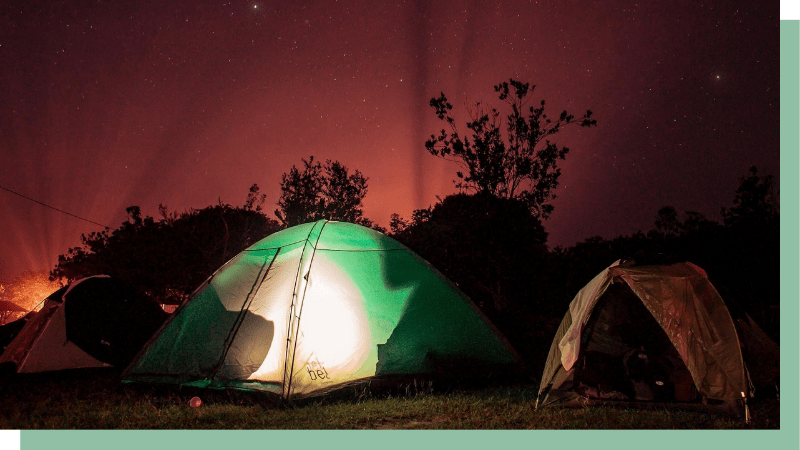
A hiking and camping trip is undeniably pleasurable. It takes you to adventures that you can never experience in the urban sprawl.
But at the same time, you should never ignore all your basic needs while you are on it. Specifically, you should never compromise your safety, comfort, and the times that you need to rest and doze off. These things elevates the overall enjoyment of the excursion,
Do you know other tips on how to sleep better during hiking and camping trips? Share it with us in the comment section below.